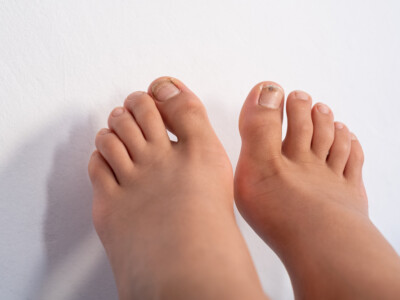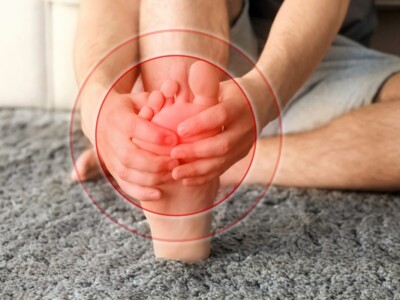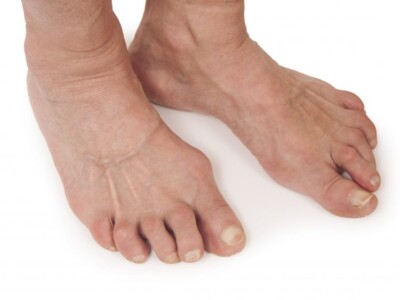Fungal Nail Infections
Fungal infections of both the skin and nails of the feet are caused by microscopic organisms which flourish most in dark, moist, warm environments. So when a foot becomes hot and sweaty inside a shoe, it produces the perfect environment for fungal spores to multiply.
Signs and symptoms of fungal nail infections
The most typical fungal infection of the skin is known as Athletes Foot or by its medical name tinea pedis. Athlete’s foot most commonly affects the skin between the toes or on the bottom of the feet, causing peeling, redness, itching and sometimes a burning sensation as well as blisters.
The infection can spread to your toenails (onychomycosis) and can lead to nails that appear thickened and discoloured and frequently have a crumbly texture. However, not all nail symptoms like this are due to fungal infection. There are many other conditions which cause a similar appearance, such as poor circulation to the nail bed, psoriasis of the nails etc.
Treatment for fungal nail infections
Your podiatrist will discuss with you multiple treatment options including time, topical treatments, tablets, and Lacuna Fungal Nail Treatment. This is a relatively new treatment which is showing very positive results.
Topical involves the use of topical treatments including nail lacquers, oils and other preparations. This is suitable for some less severe infections. It is also vital that the nail is debrided by a podiatrist as a thick nail provides the correct environment for the fungus to spread and prevents the medication from penetrating to where it is needed.
Tablets can be a very effective treatment but increasingly GPs and health professionals are concerned about the side effects it can cause, particularly regarding the liver.
Lacuna Fungal Nail Treatment drills multiple holes across the fungal area. Depending on patients’ tolerance we try to drill as much of the nail away as possible. Then apply lamisil spray for toenail fungus across the nail plate and get the patient to apply this every day and return in 6 weeks for a review.
Lamisil is an anti-fungal drug that is also known as terbinafine. Terbinafine works to create an imbalance in the fungal cell wall, this then causes fungal cell death so it is known as a ‘Fungicidal’ drug. To ensure this treatment works patients must apply the spray daily, and follow the advice given by their podiatrist.
Book a Podiatry Appointment
Other Conditions We Treat
What our clients say









